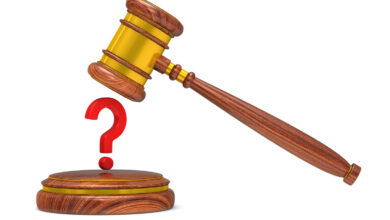What the Regulations Actually Say About Disclosure of the Mueller Report

There’s a lot of misunderstanding out there about what the Attorney General is required to disclose upon receipt of Special Counsel Robert Mueller’s anticipated report.
If Mueller completes his investigation, there will be a report. Full stop. Ignore talking heads who say “we don’t even know if Mueller will issue a report.”
They’re wrong.
The applicable Department of Justice regulations require Mueller to issue a report to the Attorney General at the conclusion of his work. Specifically, 28 CFR Section 600.8 says that at the conclusion of the Special Counsel’s work, “he or she shall provide the Attorney General with a confidential report explaining the prosecution or declination decisions reached by the Special Counsel.”
The operative word here is “shall.” Providing the AG with the report is not optional.
What happens to that report once it gets to the Attorney General is far less clear.
Contrary to widespread belief, there is nothing in the regulations that either requires the Attorney General to provide the report to Congress or the public, or that prevents him from doing so. The section of the regulation that governs reports by the AG doesn’t say a single word about doing anything with the Special Counsel’s report.
Instead, it requires the Attorney General to issue reports explaining three actions: (1) the appointment of a Special Counsel; (2) the removal of a Special Counsel; and (3) at the end of the investigation, whether there were any instances in which the Attorney General concluded that a proposed action by a Special Counsel “was so inappropriate or unwarranted” under DOJ practices that it should not be pursued.
What’s missing here? Anything about disclosure of the Special Counsel’s report.
Some of the confusion about public disclosure of the Mueller report may arise out of a sentence in the regulations that says, “The Attorney General may determine that public release of these reports would be in the public interest . . .”
The key words here are “these reports.” The reference to “these reports” is in the section of the regulation that describes the three reports the Attorney General is required to give, not in the section that describes the Special Counsel’s report. It is clearly a reference to the required Attorney General reports on appointing, removing and disagreeing with the Special Counsel, not to the Special Counsel’s report.
By contrast, the regulation describing the Special Counsel report is completely silent about providing it to anybody other than the Attorney General. Indeed, by describing the report as “confidential,” it could be read to suggest that it is meant for the AG’s eyes only.
What, if anything, does provide guidance about the AG’s disclosure of the Special Counsel’s report?
That “guidance,” if you can call it that, is found only in a single, frustratingly vague sentence in the regulations:
“All other releases of information by any Department of Justice employee, including the Special Counsel and staff, concerning matters handled by Special Counsels shall be governed by the generally applicable Departmental guidelines concerning public comment with respect to any criminal investigation, and relevant law.”
Therein lies the Catch 22 that could provide the Attorney General with cover if he decides not to disclose either the Special Counsel report, or even a summary of its findings and conclusions.
Suppose, for instance, that the Special Counsel’s report sets out an alarming litany of well-supported crimes and impeachable offenses by Donald Trump, but also says that Mueller has decided not to indict him, not because he hasn’t committed crimes, but only because existing DOJ guidelines say that a sitting president can’t be indicted.
Because the bottom line of this would be a decision not to prosecute, it would be what the criminal justice system terms a “declination.”
Under existing DOJ guidelines, when a prosecutor closes an investigation without a prosecution, he/she is not supposed to release derogatory information about the subject of the declined prosecution.
That what got James Comey into trouble over his bizarrely inappropriate press conference in which he trashed Hillary Clinton at the same time he announced his decision not to charge her with any crime. Deputy Attorney General Rod Rosenstein pointedly accused Comey of violating the DOJ’s “longstanding principle” against releasing derogatory information uncovered during an investigation that led to a decision not to prosecute. He called it “a textbook example of what federal prosecutors and agents are taught not to do.”
Therein lies the Attorney General’s fig leaf to cover a decision to disclose nothing about what the Special Counsel’s report says about Trump, no matter how damning its findings and conclusions. The decision not to prosecute will be a declination, even if it is based on a highly debatable DOJ guideline not to indict a sitting president, rather than on the underlying facts of the case.
Since DOJ policy is not to disclose derogatory material about the subject of a declination, the AG can posture what looks to the rest of us like a cover-up as being on the side of not only DOJ regulations, but truth, justice and the American way.
And this is exactly what Trump’s nominee for Attorney General, William Barr, seems to have in mind.
In his cagey, finely-calibrated testimony to the Senate Judiciary Committee, Barr tried to walk a line between posturing himself as a champion of transparency, on the one hand, and hinting that DOJ regulations might prohibit disclosure of Mueller’s findings and conclusions, on the other.
He committed himself to absolutely nothing with respect to disclosing the report, in whole or in part.
Case closed, right?
Maybe not.
There are several potential paths out of this dilemma:
- The Mueller report could be leaked;
- Congress could demand that the AG turn it over;
- The courts could require the Attorney General to provide the report to Congress, or at least a full summary of its facts and conclusions, so that Congress can fulfill its constitutional duty to investigate impeachment;
- The AG himself could recognize that, given the unique circumstances of presidential immunity from prosecution, congressional responsibility for impeachment, and the public interest, the DOJ guidelines must give way to greater interests;
- Mueller could describe Trump’s criminal activity, not only in his report, but also in an indictment of others who worked with Trump, but who do not enjoy his presidential immunity from prosecution. That wouldn’t make the report itself available, but it would accomplish the same goal;
- Other prosecutors, such as the Southern District of New York or the New York State Attorney General, could do the same, and could even indict Trump directly, ignoring DOJ guidelines.
There are no doubt other paths out of this dilemma, but those are the ones that come to mind.
The point is that at the end of the day, we really don’t know how, or even if Mueller’s findings and conclusions will find their way to Congress or the public.
But I can’t help believing that sooner or later disclosure will out, one way or another.
Something about the arc of history.





Excellent. I have strong doubt that the Special Counsel is going to find indictable offenses, or, if he does find these that he will choose to indict. It is a tricky situation–and apparently his choice. That I hopefully may be wrong about this though, will then get us some Mueller report disclosures.
Otherwise, for the dollars Americans must have spent for this Special Counsel, all then that might remain is AG Barr’s claim that he will be true to justice in its highest form, rather than to protection of a presidency for whatever misguided reasons he might conjure.
brad, Mueller has already gotten back more than what it has cost him from Manafort alone. Also, if we have people in our government that are doing the things they are being accused of wouldn’t you rather know the truth? Russia does not care if something hurts us if it helps them and they’ve tried and even succeeded in spying and more in the US already. Party preference aside, Americans deserve to know the truth.
Joe,
I do not believe it actually cost Mr. Mueller one dime to send Mr. Manafort to prison. I do believe you footed most of the cost. I also believe that cyber hackers/manipulators and information they derived and used, no matter which nation they are from have done geometrically more damage to the US than any of our government’s “inside” criminals. Furthermore, the US has a long and well-documented history itself of interfering with and even subverting and toppling international governments–even democratically elected ones. Russia is just doing even to this day what the US has practiced for decades. Apparently, it is okay when we do this, but not okay for others. After all, Americans think of America as “exceptional,” when, in fact, we lost that once-deserved designation long ago. Most high government officials even have to wear an American flag pin on their suits to remember they are American.
Interesting facts: (1) 43 US presidents (Grover Cleveland served two non-consecutive terms); (2) Of those, two impeachments–both ended in acquittal; (3) One president resigned; (4) 12 presidents served two terms. My point is, we know every single president committed crimes (well documented by historians), although most of those were not at the “high crimes and misdemeanor” level. Thought of as decent men, even Gerald Ford and Barack Obama authorized crimes or committed these themselves. This is the way all presidents believe government has the power to operate.
Special Counsel Mueller might very well find crimes, since within all presidencies there are crimes of even serious nature. There is only one reason I hope President Trump is not impeached: Even though President Nixon resigned and not impeached, the national and international disruption caused by both him and President Clinton created havoc throughout the world the repercussions of which yet rumble to this day. Hell, the Mueller investigation alone is tying us in knots of anguish and causing others to become slavering, mad dogs.
Then, recall the periods of Archibald Cox and Leon Jaworski. Complete national turmoil.
And do not forget who is in line behind Mr. Trump. That would be Mr. Pence; and while he does not appear to be the sociopath that is Mr. Trump, he is also a dangerous man, but more quietly so. If he became president by default, likely there would be a full term next for him too. (Do not forget that Mr. Trump’s rabid base will yet exist even without him.)
I believe we can bear 21 more months with President Trump. I do not believe we can bear another presidential term for him.
Two comment/questions:
* In Ireland, we have a “30 year rule” for disclosure of Government papers, would this be covered by such a rule in the US and if so how long would it be?
* Could an incoming Democratic administration choose to publicise it in full, one presumes they would take over the keys to the secrets in full?